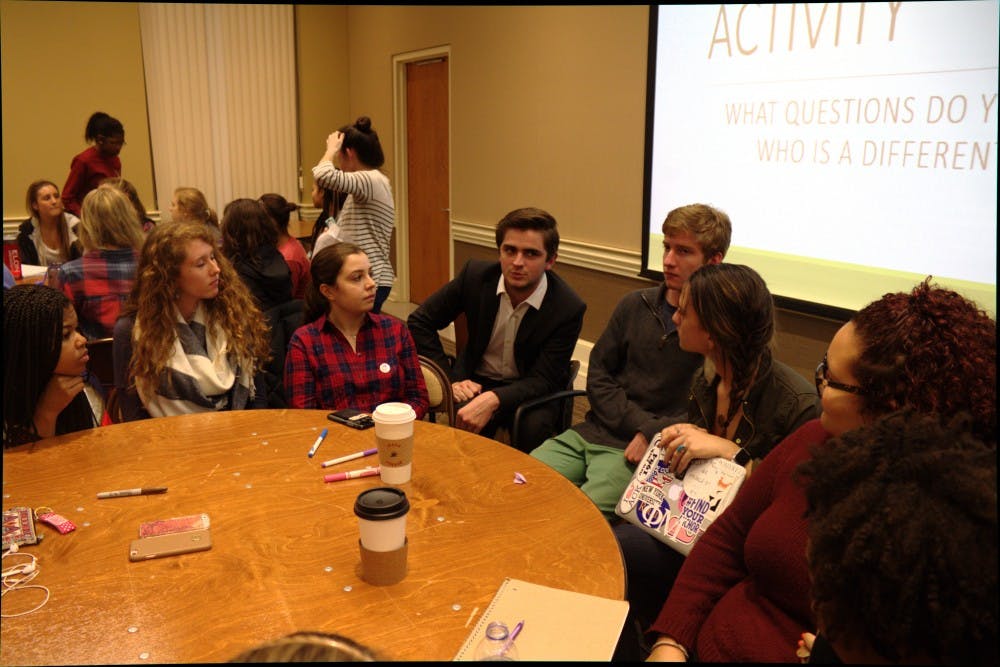When Elon University freshman Jazmine Langley and her high school classmates were talking about their backgrounds one day, one said the school "was infested with black people.”
Langley, an African-American student speaking at Tuesday night's event, "Being White at Elon, A Conversation About Privilege," said the comment still resonates with her today and shows the need for increased racial tolerance.
“I don’t know why he thought it was okay for him to say that,” Langley said during the round table discussion. “The little comments like that are the most hurtful.”
Sponsored by the Diversity Emerging Education Program (DEEP), a cutoff section of McKinnon Hall in Mosley Center overflowed with students, faculty and staff ready to discuss the incredibly difficult topic of racial privilege.
The ground rule of being comfortable about being uncomfortable was established immediately. As people poured into McKinnon, they were given a colored index card and asked to write a question on it. When the discussion started, everyone had to relocate to the table with the same colored card. This forced friends who arrived together to separate and interact with other people.
During the early stages of the discussion, those in attendance watched a Buzzfeed video that portrayed Caucasian, college-aged people thinking out loud to awkward, racially-charged situations.
One scenario in the video showed a white girl being offered a pumpkin spiced latte, but hesitant to accept it because of the common stereotype associated with the latte. Another scene showed a white male being discontent with his name because it was “too basic.”
But the most interesting part of the night may have been when students involved with DEEP gave personal examples of their struggles with the racial privilege dilemma.
Charlie Cheema-Brown, a freshman of Middle Eastern descent who was adopted in the United States, said he normally gets stopped during airport security procedures more frequently than other white people because of his name.
He said he hopes his story would inspire others engage in an open dialogue and work to solve issues of racial bias.
“People aren’t going to talk about these problems if you keep them bent up inside,” Cheema-Brown said. “If I share what I go through, then people will see trends like this more often. And when people notice [such a trend], more often it gives them a better chance to stop it."


